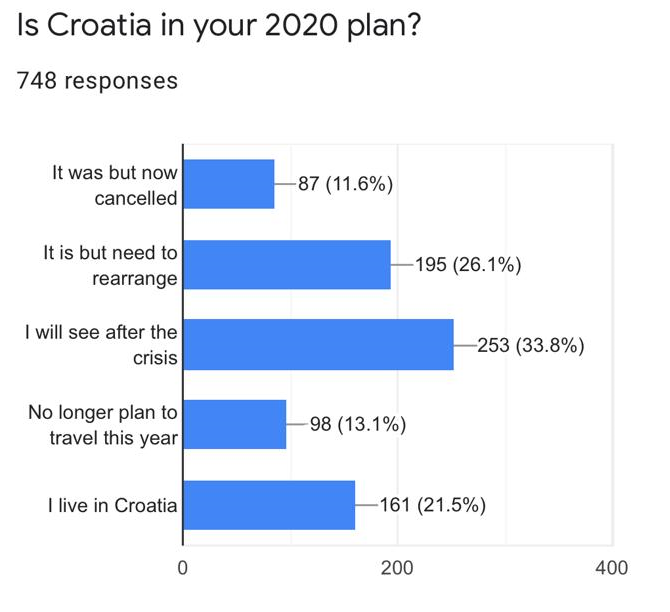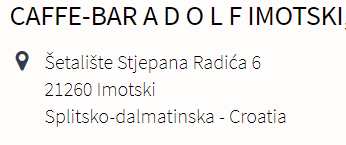Hope v Reality: Will There Be a 2020 Tourist Season in Croatia?
March 25, 2020 - With so many people dependent on tourism as COVID-19 continues to spread, will there even be a tourist season in Croatia and elsewhere this year? Some things to consider.
(THIS ARTICLE IS NOW AVAILABLE IN CROATIAN, HAVING BEEN PUBLISHED BY INDEX.HR ON MARCH 27)
One of the more surreal aspects of this current madness is the level of understanding and acceptance of the new reality among people. Some had alarm bells ringing in early January when news broke about COVID-19, while others at the other end of the spectrum expect things to return to normal by Easter when all this nonsense will blow over - including, it seems, the esteemed President of the United States.
I am genuinely astounded at the number of angry emails I am getting at the moment, from people demanding to know if their holiday plans are going to be ok. Or complaining that their flight has been cancelled in April, as though I should do something about it. Just 11 days ago, I received this, for example, albeit very polite:
I am writing from Virginia in the United States. We were supposed to visit Split in late April and then embark on a cruise to Dubrovnik. It now appears that our trip may be in jeopardy. We are getting ambiguous reports about whether or not American citizens must undergo a 14-day quarantine upon entering Croatia. Can you enlighten us?
This was the same day I arrived on Hvar with my family to self-isolate for what I knew was going to be a least a couple of months, and someone was worried about a cruise in Dalmatia next month. It is not his fault, it is just not real in Virginia. Yet. In the same way that Italians cannot believe that the rest of Europe did not immediately learn from their tragic experience.
Wait a couple of months? Yes, that is how long I plan to be in Jelsa, at least I thought so 11 days ago.
As the owner of a small travel agency who specialises in holidays to Croatia, I'm an avid reader of Total Croatia News for up to date information on all things Croatia. I've just read your article about self-isolating in Jelsa. I notice you've said you're doing this for 2 months? Why that long? Is that your decision or a length of time from what the Croatian government has said?
Timeline March 18 - 7 days ago. I replied quickly that although schools were closed for 14 days initially, I thought this would take a couple of months.
OK, thanks. What are your views on the 14 day self-isolation for incoming visitors? Do you think this will still apply at the start of May? That of course means pretty much zero tourists and would be disastrous for the local economy.
Yes. Yes it would. And sadly, it will be. Again, I can understand the second correspondent. He has a business to run, bookings made and this thing needs to be over. It is still very remote to him in the UK. Or it was 7 days ago, for a LOT has changed in the UK in the last seven days.
I think most people would agree that their understanding of the reality of what we are facing is different today than it was yesterday, a week ago, a month ago, two months ago. Every day brings a new realisation. And we are all at different stages on that path of understanding. The Virginia cruise tourist and the travel agency owner will catch up quickly, if they haven't already.
One of the things that corona is bringing is clarity and the need to deal with the brutal truth. A bit like Trump hopes this will all be gone by Easter because he likes Easter, so too with the tourist season in Croatia. We all want it to start asap, and we all need it to - for it is over 20% of our GDP.
But is it better to want it to happen, like the Trump Easter Bunny, or face the (potentially quite frightening) reality of what the tourist season in Croatia will look like this year?
I decided to write this article because I think we need to deal in realities to get through this. I am not a tourism expert, but I do speak to a lot of people in the industry, and I have been writing about Croatian tourism for many years. I have many, many friends in Croatian tourism here, all of whom have some tough choices to make. Our own apartment rental is seeing its booking calendar empty by the week. Those tough choices have to be made with the best possible information available. A little like the cruise tourist from Virginia, who is possibly not dreaming of that cruise now 11 days later, here are some thoughts on things to consider on when or even if the tourist season might start, written with the best of intentions by someone who is perhaps further down the road of understanding what we are looking at.
So what does Ryanair think about the resumption of flights to Croatia and elsewhere?
This is the Ryanair homepage, with the first advertising banner on March 25, 2020. The market Europe's biggest low-cost airline is targeting right now is late season breaks in September, six months from now.
Ryanair Group CEO Michael O'Leary issued a press release update about the latest from the Irish airline yesterday. You can read it in full here. This paragraph gives us some clues:
At this time, no one knows how long this Covid shutdown will last. The experience in China suggests a 3-month period for the spread of the virus to be contained and reduced. We do not expect to operate flights during the months of April and May at this time, but this will clearly depend upon Government advice, and we will in all cases comply with these instructions.
So currently, Ryanair does not anticipate returning to its normal schedule until June 1, based on the Chinese experience of 3 months. Which is one benchmark, but then perhaps one should factor in that Europe has not exactly imposed the discipline of the Chinese in dealing with COVID-19.
(As an aside, because I have had a LOT of emails about Ryanair and cancelled flights, it appears that they have cancelled most of their flights from UK and Ireland to Zadar - but not other European destinations - with the exception of the Hideout Festival in June. You can see more on this in our recent article, Ryanair in Croatia: Almost Total Zadar 2020 Cancellations, But Split, Dubroovnik OK?)
But let's be positive and hope that we can get this sort in time for the resumption of flights by June 1, as Ryanair seems to be aiming for. There are some other things to consider.
How many people will want or be able to afford to go on holiday to Croatia or elsewhere?
If we could all go back to normal on June 1, most of the season would be saved. But it is sadly not that simple.
The economic fallout from COVID-19 is only just beginning, and people are already losing their jobs, businesses going bankrupt. This trend will sadly only get worse in the coming weeks. And so when this madness is finally over, the good news is that EVERYONE will want to escape their self-isolation reality, and there is no better way to do that than on an idyllic Croatia beach. BUT how many people will have the disposable income to do so?
We did a quick survey on TCN about people's intentions about visiting Croatia. We got 748 responses, which is not a huge number, but there are perhaps things to think about.
Two things I take away from this.
- A significant number of tourists will not travel this year.
- A very significant number of tourists will wait until all this is over and then decide (more on this in a minute)
Competition for tourists after coronavirus is going to be INSANE
Greece, Italy, Spain, Egypt, France, Turkey, Tunisia, Montenegro and many other countries have very large tourism industries, all of which are in a similar situation as Croatia. They will all be trying extra hard to grab whatever they can from the smaller pot of potential tourists. And one of the key weapons they will fight with is one where Croatian tourism is not particularly competitive.
Price.
Expect savage discounts to get at least some tourists to come. Imagine how cheap Italy is going to be, for example, as they need to rebuild their tourism industry. But Turkey, Egypt, Greece - they are better on price than Croatia traditionally, so if there is going to be a tourist season in Croatia this year, there is going to have to be a lot of thought on price.
Expect tourism countries to appeal to tourists to do their patriotic duty and holiday at home
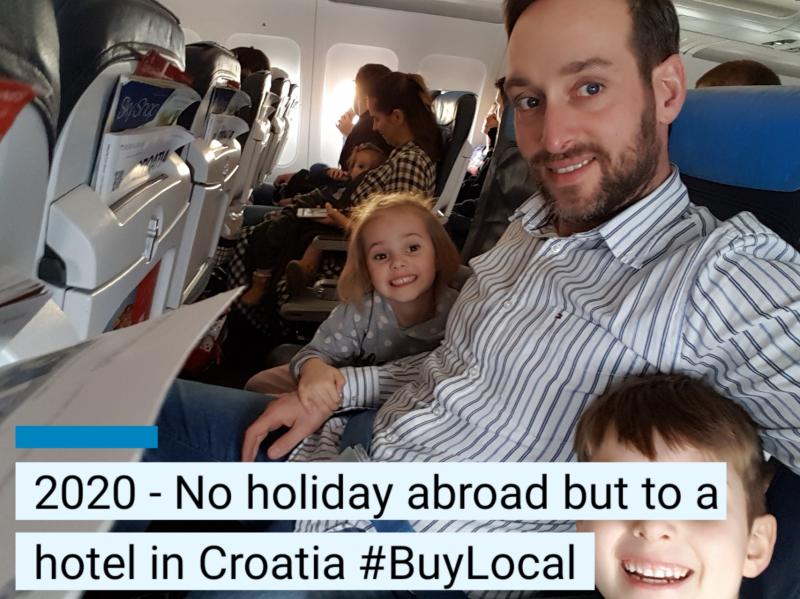
(Dutch entrepreneur Jan de Jong from Split is already thinking ahead)
Expect Spanish tourists to be encouraged to holiday in Spain, Italians in Italy, the French in France. Croatia is sadly not the only country that needs to recover from this, and supporting local tourism will be a key priority of governments looking to rebuild after corona.
How many flights to Croatia will there be in 2020 if the season does start?
It is still very questionable how the airline industry will survive this huge hit on their industry. Grounding entire airlines for weeks comes at a huge cost, and without major government intervention, some airlines will go bust. And even it they don't, the schedules will be reduced.
This is going to be worse news for the likes of Greece, Turkey and Egypt, because the majority of Croatia's tourists arrive by car (about 75% from memory).
What should Croatia do to attract tourists for the 2020 season after COVID-19?
The Ministry of Tourism and Croatian National Tourist Board have put all promotion on hold for the moment, which is very sensible. But where should they be focusing the efforts when things pick up again?
With the uncertainty of flights, I think it makes sense to focus on the markets which have been the backbone of Croatian tourism for decades, and which can be reached by car. The Germans, Austrians, Slovenians, Poles, Czechs, Slovaks and Hungarians all adore the Adriatic, which is still just a short drive away. Some intelligent campaigns (AND pricing). Croatia remains the best and most attractive sea option for all these countries. There will be strong competition from other tourism countries for this business, but Croatia currently holds a competitive advantage with customer loyalty and that unbeatable Adriatic.
And I would add Serbia to that list. Of course I understand the issues with Serbs due to the past, but the official approach to Serbia is really rather odd. They are among the best spenders, live next door, and if you get a Serb for one summer on the Adriatic, there is a chance you get them for life.
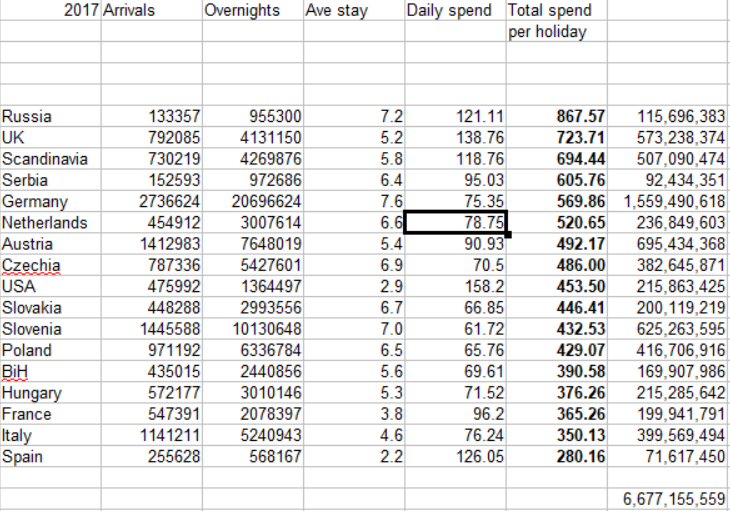
(You can learn more about how Serbia ranks in Croatian tourism spend in this article)
Back in 2011, some 16 years after the war, Croatia was the main sponsor of the Belgrade Tourism Fair. No issues with the past nine years ago. And yet two years ago, when I visited the Belgrade fair, there was no official Croatian tourism board presence at all. When I enquired why, I was informed by the Croatian National Tourist Board that Serbia as no longer a strategic market.
Perhaps now it should be.
So will there be a tourist season in Croatia in 2020?
Yes, I think so. But I think it is important to bear in mind that it will be different. A lot different.
Paradox Hospitality CEO Zoran Pejovic has a lot more experience in tourism than I do. And, always a positive force, he has written a couple of great articles on preparing for the uncertain future.
Travel Industry: Keep Communicating and Visibility
Build Scenarios! Be Present! Take Time to Think!
There are some very difficult days ahead for Croatian tourism and its workers. I hope this article has given a little clarity on the scenarios of the road ahead, in order to help with some decision making.
Let's hope for the best tourism season in Croatia that we can manage in the circumstances.
Travel Industry: Keep Communicating and Visibility
March 21, 2020 - Running a business in the travel industry in these chaotic times? Some thoughts from Zoran Pejovic, CEO of Paradox Hospitality in Split.
Stay visible! Communicate! Be mindful!
Coronavirus disease, the virus pandemic and the symbiotic fear pandemic, is an unprecedented global event that is about to bring the developed world to a halt. Nothing similar has ever happened in our lifetime. Nothing will ever be the same. Things will get back to normal one day, but it will be a new normal. Embrace this information. Become aware of the new and developing context. Be mindful of your position, but also of the positions of others. Everybody, literally everybody you know is facing uncertainties about their health, business and job prospects, and the future in general. Don’t deny it, don’t overreact, embrace it, understand it. Read the official statements, read scientific journals, read research papers, practice social distancing and social media distancing, because both can be deadly these days. Afterwards, take time to think.
If you are a hotel or a travel agency, tour operator, travel designer, destination management company or a restaurant, you are facing an insurmountable challenge. Closed borders, cancelled flights and zero business. Take time to think.
Very few tools are at your disposal now, but you are not without a voice. One of the most important questions right now is how to communicate your message to the world?
You want to keep your visibility, and that is important and understandable. I think you should make yourself visible but be very smart about it. I think it is the right thing to continue using the social media to a certain extent, but use it to promote the importance of mental health, promote life in small communities if you are in one of those, tell the stories of local heroes and support the efforts of people who are putting everything they know into solving this crisis. Or else tell a dream. Tell a heartfelt story.
Perhaps you might feel an urge or get a directive to address the world with an official statement. Considering how the situation is changing by the hour I am not very supportive of these type of communication tools. Instead, pick up the phone and call your most important stakeholders. Talk to people. It feels great. You might learn something new; you might tell them something that they did not know. Anyway, it is way more personal and valuable. Call them again.
Then again, I am being inundated daily with messages from CEOs and PR specialists from companies from all over the world showing how much they care about me, how much they understand my predicament, how much they care about their employees and how we are all going to bounce back one fine day as if nothing has ever happened, or how are we going to be stronger than ever, just this time with dolphins swimming up the Venice canals. Even in these situations, most of the companies are falling back on the corporate language. So, please, if you are one of those that I listed above, a small hotel, or a large hotel, you are in the travel or tourism industry, please drop the corporate language. If there ever was the time to not copy and paste and regurgitate the same messages just for the sake of sending them, it is now. It is way better to send nothing right now, than to send half a page of corporate cacophony that says something but nothing at the same time. Nobody really reads that. Why send it then?
However, if you are ready to send something, keep it short, honest and to the point. There is no recipe on what to say really. Perhaps you can tell people that you are hurting. You can ask for help. You can offer help. Whatever you say, make it your own. You built that business, you have been running it for years, guests trusted you, your partners trusted you. Trust them now with your openness and sincerity. Honesty is the best policy!
If you are sending mass emails to partners, guests or others please do not add your owners or CEOs headshots to them. Also, do not try to make it funny, or add to the panic. Most importantly, do not spread misinformation and fake news.
Afterwards, take time to think! And then clear your mind!
You can connect with Zoran Pejovic via LinkedIn.
Croatia Welcomes Spring with Sunny Skies and Warm Weather, But Will It Last?
March 21, 2020 - Croatia welcomed the spring season with sunny skies and short sleeves, but will it last? A long-term weather forecast.
RTL meteorologist Dunja Mazzocco Drvar, however, announces that this taste of summer will only last two days, reports T.portal.
March will continue with some changes and chills, which we will experience in the next few days. Temperature drops and sudden changes in weather are typical for this time of year, and especially in April. But what kind of spring awaits us?
According to current calculations, it can be said with more than 80 percent certainty that the next quarterly period, April to June, will bring warmer weather than average. With the same probability, it can be said that there will be less precipitation at that time than is usual for this time of year, says Ana Bago Tomac, a meteorologist at Dnevnik Nova TV and Zagreb Airport.
Of course, we can expect precipitation, especially in May, the most unstable month of the year. Still, on average, the coming period, until summer, will be dry and warmer than the long-term average, says Bago Tomac.
This is a trend that continues year after year. Last year was the hottest year, and the effects of global warming will certainly be felt this year.
We had no real winter this year, and temperatures will continue to rise more than average in the spring, AccuWeather predicts. However, this does not mean that strong storms cannot be expected between March and May, alternating with droughts. Admittedly, storms will move north of the continent and will be of concern mainly to Ireland and the UK.
While temperatures above average are forecast across Europe, the most frequent and longest periods of heat will be felt in the Iberian Peninsula and Germany and the southern United Kingdom.
More warmth also means an earlier start to the allergy season that will come with flowering plants and increasing pollen in the air, warned AccuWeather meteorologist Tyler Roys. At the same time, the benefits of warm and mostly dry weather could be of use to farmers as they will be able to plant faster than usual.
This spring heat could easily turn into unpleasant heat well before the calendar and meteorological start of summer. "I expect it to heat up in parts of Portugal and Spain as early as May in the middle of May," Roys predicts. "On land, temperatures could easily go above 30 degrees Celsius."
Moreover, forecast data show that temperatures could rise as high as 38 degrees in late May and early June, and up to 27 in London.
"High temperatures, above 30 degrees Celsius, can be expected in the second half of May from Paris to Berlin," announced AccuWeather meteorologist Alan Reppert.
At the same time, meteorologists warn, despite the warm weather, or because of that, humid air and spring storms can be expected across western and central Europe. The greatest danger is threatening residents from France, through Belgium and the Netherlands, to Germany and northwest Poland.
Devastating winds, hailstorms and torrential showers could cause concern for many residents of endangered areas, and tornadoes could be expected. All of this will cause traffic jams and power outages, AccuWeather warns. In particular, the area between Paris and Berlin will be endangered during April and May.
The positive side of occasional storms will be rainfall that will soak the soil and prevent the riverbeds from drying out. Thunderstorms, on the other hand, can damage crops, according to an AccuWeather report.
Meteo France also predicts temperatures higher than average for the time of year: temperatures in the British Isles should be 0.5 to one degree Celsius above average, while in most parts of northern and eastern Europe, temperatures are expected to be up to two degrees higher than usual.
Northern Europe will be slightly wetter than average, especially Norway and central parts of Scandinavia, while in western and southwestern Europe, the coming period should again be drier than average.
March to May will be marked by high pressure over much of northern and western Europe, again indicating a relatively dry and anticyclonic spring, while low pressure is expected at north latitudes, French meteorologists forecast, and with the arrival of summer in western Europe, the cooling that should come with the winds blowing from the Atlantic.
German DWD also predicts warmer weather than average, in southwestern Europe and by two degrees Celsius. Rainfall is predicted to be less in the west, southwest and southern parts of the continent, while the far northern Europe should be wetter than average.
And in Croatia, it will generally be drier and warmer, with expected showers, especially in May.
To read more about lifestyle in Croatia, follow TCN's dedicated page.
Croatian Hotels in Coronavirus Crisis: Cancellations, Temporary Closures, and More
March 16, 2020 - A look at how Croatian hotels are handling the coronavirus crisis in the country.
HRTurizam writes that there is no doubt that the coronavirus pandemic is affecting the tourism sector most. The borders are closed, all events are canceled, there is a ban on gatherings over 100 people, schools, colleges and kindergartens are closed, and the recommendation is not to travel, or to keep people in self-isolation.
Everyone in the tourist chain is under attack, from travel agencies and renters to hotels, many of which have had to close their facilities temporarily. As we can see from the reports on the Zagreb Stock Exchange, hotels are registering cancellations of bookings and various gatherings in March, April and May, and a fall in stock prices. Still, so far, there are no significant cancellations from June onwards, which is good news.
Although the current annual reservation status is better than last year, Valamar Riviera reports that the number of new bookings has slowed significantly since the coronavirus escalated. The current cancellations of bookings recorded primarily relate to the period from March to May this year and only to a lesser extent to the rest of the main season, which accounts for over 85% of annual operating revenues, says the Zagreb Stock Exchange.
Hotel Medora Auri 4* started operating on February 4, 2020, but will be closed from March 14 to March 30, 2020, respectively, subject to harsh travel conditions from the major markets, until the above circumstances change. Other facilities at Medora hotels and resorts do not anticipate a change in the schedule of operational work.
According to Maistra and Adris Group, business operations were in line with expectations by early March, but after adopting emergency measures and recommendations in the Republic of Croatia and other neighboring countries, cancellations of bookings for accommodation and meetings for March, April and May 2020 began, mainly in the MICE segment. There are currently no significant cancellations for reservations from June onwards.
Liburnia Riviera Hotels say the coronavirus has a negative impact in terms of reservation cancellations and reduced capacity occupancy. According to current data, 19% of total confirmed bookings were canceled in February, 64% in March and 62% in April. Cancellations in May and June are slightly lower at 31% and 21% respectively. Liburnia Riviera hotels say that the continued duration of the disease will continue to affect their business adversely, and its effects will depend on the length of its exposure in Croatia and the countries of origin of its clients.
The Imperial Riviera said that the current state of bookings is at the level of last year, but the entry of new bookings has slowed significantly. Cancellations are mainly for April and May.
Plava Laguna states that from the end of February, the Company recorded cancellations in the amount of 25% for March and April, while there are no cancellations in the high season periods.
Given the current situation at Maestral Hotels, it is estimated that the opening of the hotel for this tourist season will not be achieved at the planned pace, and only one hotel is currently open. Bookings from focal states for group arrangements for March and April were canceled, and new bookings for the rest of the year slowed down by 50% compared to last year.
A large number of canceled reservations in the preseason and early summer season are also recorded in Vodice Hotels, which is why the official opening has moved towards the middle of April.
According to the first indicators, Jadran Hotels expected a successful tourist year, but in the last two weeks, numerous reservations for April and May were canceled, and sales for the rest of the season were stopped. Furthermore, the inflow of funds was halted by agencies seeking price reductions and more flexible cancellation and deposit terms.
Palace Hotel Zagreb reports that after adopting extraordinary measures and recommendations, cancellations of reservations and meetings for March, April and May 2020 began.
FTB Tourism plans to open their hotels in Cavtat on April 1 and 19, however, they cannot say for sure given the slow entry of new bookings and the cancellation of existing bookings. The high risk to the business, they say, is undoubtedly the legal restrictions on the movement of citizens of certain countries, especially the main markets, Great Britain and France.
At a meeting of the Presidents of the Board of Directors of the members of the Croatian Tourism Association, the leading hotel companies decided to suspend the operation of most hotels for two weeks. HUT points out that in each coastal destination, one hotel accommodation will be provided, while several hotels will be provided in Zagreb.
As the main tourist season brings more than 85 percent of the annual operating income to hotels, as well as to everyone, we hope that the whole situation will settle down as soon as possible and that the tourism sector can still count on turnover in the main tourist season. It is difficult to predict how much this situation will affect travel in general, i.e., how long it will take to activate the tourism market.
Follow the latest coronavirus updates on the dedicated TCN section.
10 Things Which Await You in Croatia After Corona Crisis
March 15, 2020 - There is no doubt that rough times are ahead in the coming weeks, but spare a thought for the longer terms - 10 things which await you in Croatia after Corona.
Being a tourism blogger in these uncertain times is about as useful to man as being a cocktail meister in Jeddah and - like many other people whose worlds have been turned upside down by the coronavirus - I am learning to adapt to new realities. At a time when we would normally be writing lots of articles about upcoming events and reasons to visit Croatia, the focus sadly is more on flight cancellations and postponed festivals. There is no hiding from the fact that the coming weeks will be difficult, but the good news is that this will not go on forever, and while your holiday to Croatia may be delayed, Croatia will still be there when all this is over. So, in an attempt to inject a little cheer into the current gloomy mood, here is a reminder of ten things which await you in Croatia after Corona:
1. Beaches
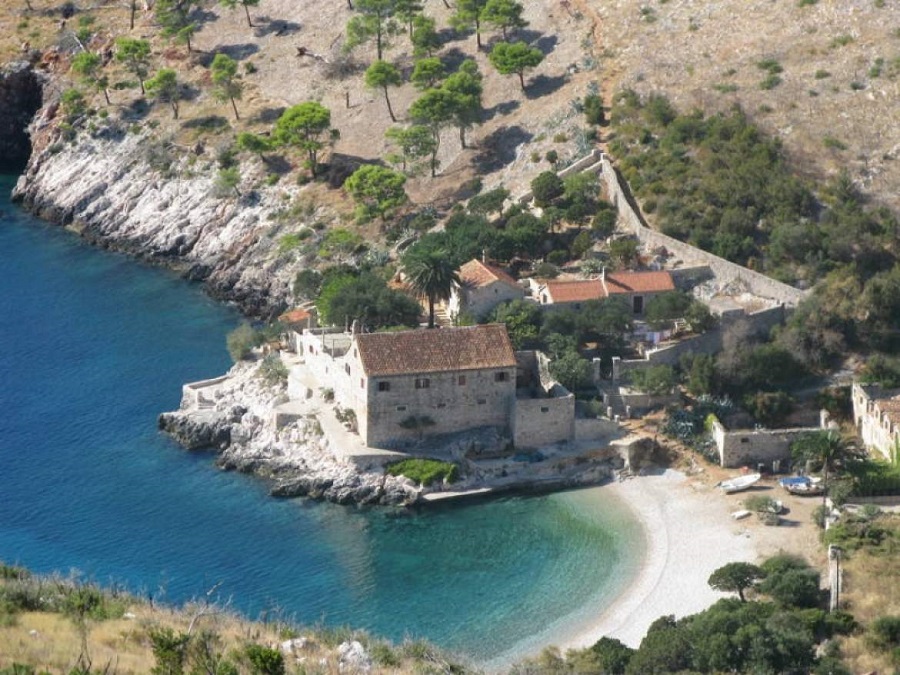
With almost 1,800 km of coastline and over 1,000 islands, it is perhaps no surprise that beach holidays are the main attraction in Croatia. With so many to choose from, you can really pick your spot, from busy beaches in crowded resorts to hidden coves off the beaten path. With the inviting Adriatic offering instant refreshment, close your eyes for a moment and imagine what life will be like on holiday when all this is over. Take a tour of some of the beach hot spots of Croatia in the Total Croatia Beach Guide.
2. Sunshine
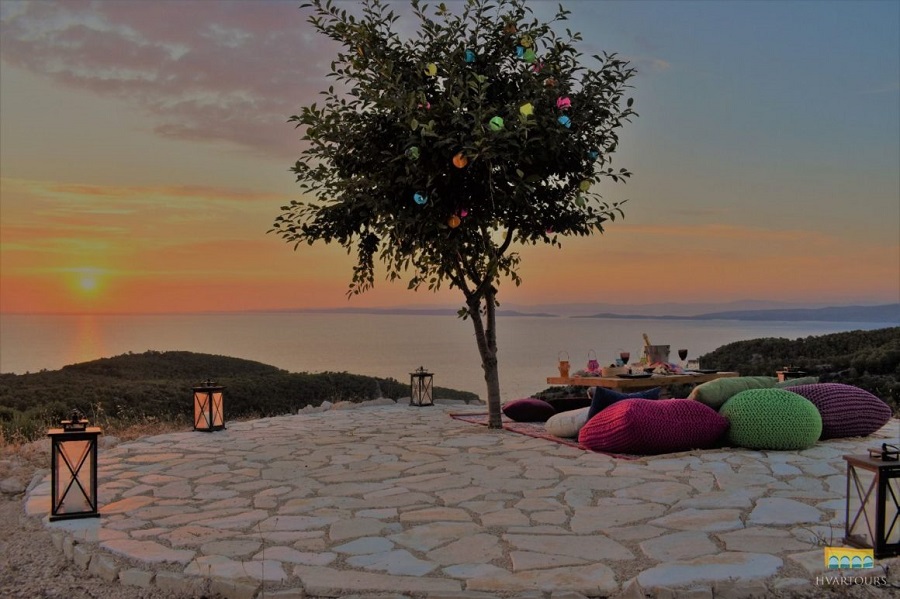
(Photo by Hvar Tours)
Don't underestimate the power of the sun. Self-isolation, staying at home rather than that planned holiday. The legendary Adriatic sun will feel all the warmer on the skin when you finally arrive. And there are few sunnier places than Croatia, which includes the sunniest European island of them all, Hvar. And if you are looking for a late-season getaway, do research the temperatures, both sea and air, of Dubrovnik and southern Dalmatia in September and October.
3. Lifestyle
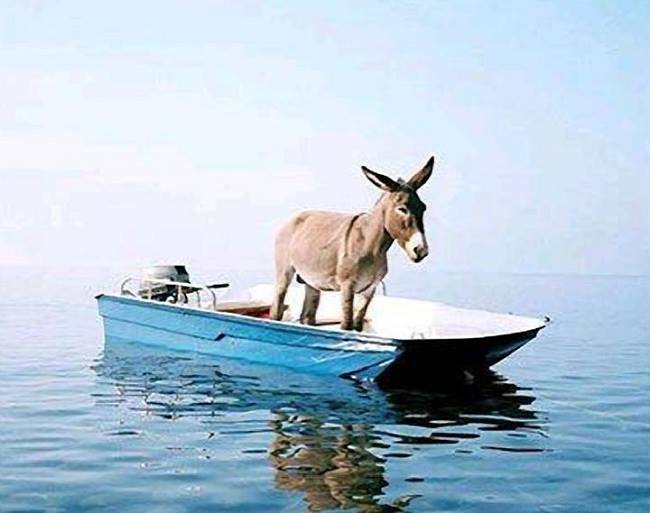
Is there a better and more relaxed lifestyle in all Europe?
4. Food
The late and legendary Anthony Bourdain discovered Croatia's 'world-class food, world-class wine, world-class cheese' in 2011. And after a few weeks living off tinned vegetables in self-isolation, don't you think you deserve the same? Croatia doesn't have a national cuisine of sorts, but rather some outstanding and distinctive regional cuisines from places such as Dalmatia, Istria and Slavonia. The menus vary from season to season, as the emphasis is on fresh, local produce. Food as it should be. And Croatians love to celebrate their food at every occasion. Why not get yourself in the mood by checking out these 25 natural food festivals in Croatia?
5. Wine
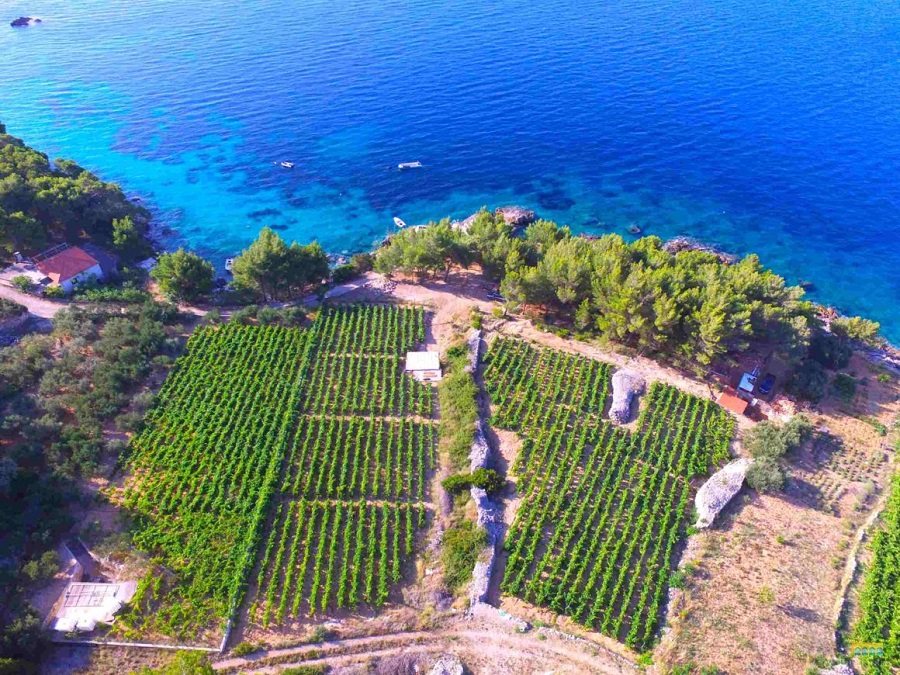
Croatia is one of the great undiscovered wine regions of Europe. It is here that the original Zinfandel comes from (from the vineyards of Kastela, near Split), and wine experts are raving about the diversity of Croatia's 130 indigenous varieties. Most of the winemakers are small producers with their own styles and stories, which only adds to the uniqueness of the tasting experience.
6. Heritage
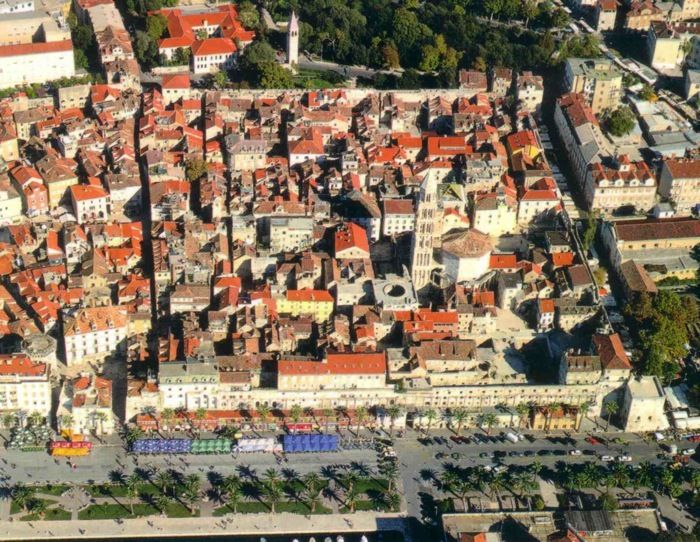
Visitors to Croatia are often surprised by the country's history and heritage. The country boasts no less than 11 UNESCO World Heritage Sites and numerous intangible UNESCO heritages (check out the full list here), including a retirement home for a Roman Emperor in Split, Diocletian's Palace. Its historic stone towns have survived many wars and plagues over the centuries, and they will be there to welcome you once all this is over.
7. Adventure
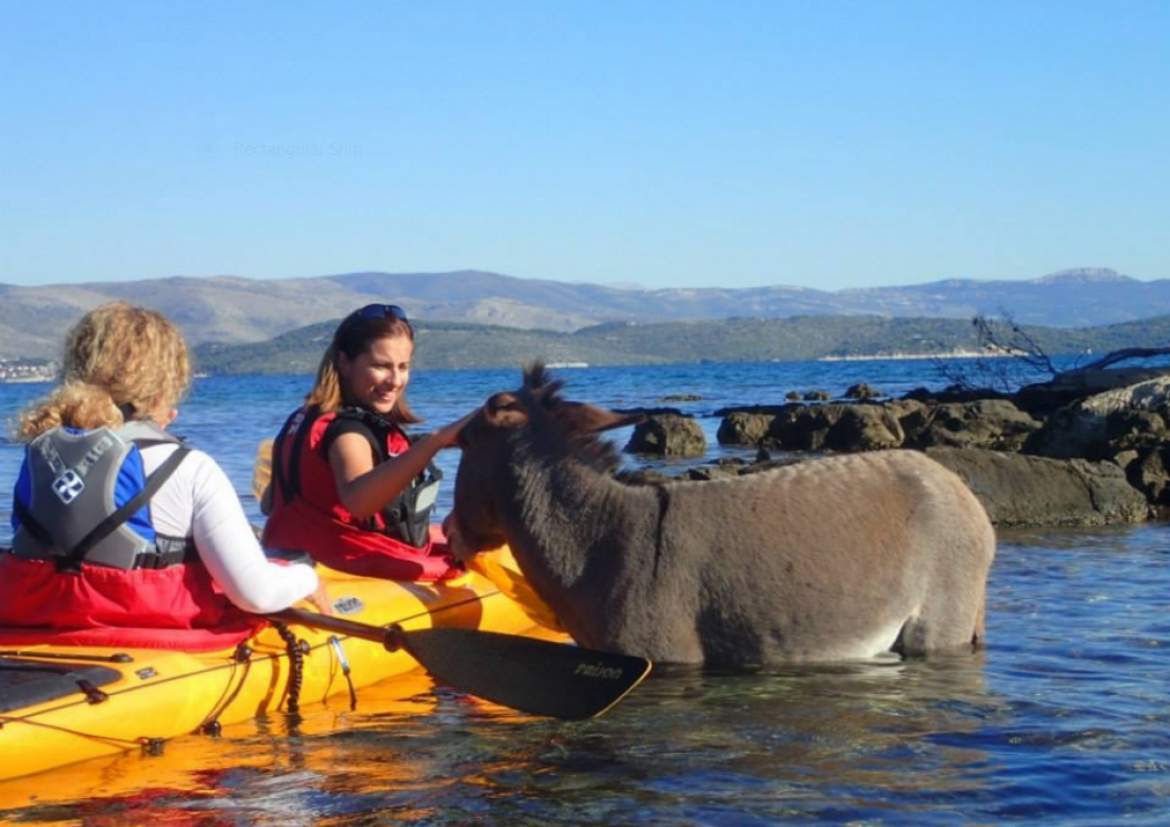
(Photo And Advenure/Mario Romulic)
After a few weeks of restrictions, it is only natural that people will want to let their hair down a little. And what better place than the Great Outdoors of Croatia? Sailing, kayaking, rock climbing, mountain biking, ziplining, white-water rafting, and a whole host of other activities await in one of the most picturesque adventure playgrounds in Europe.
8. Nature
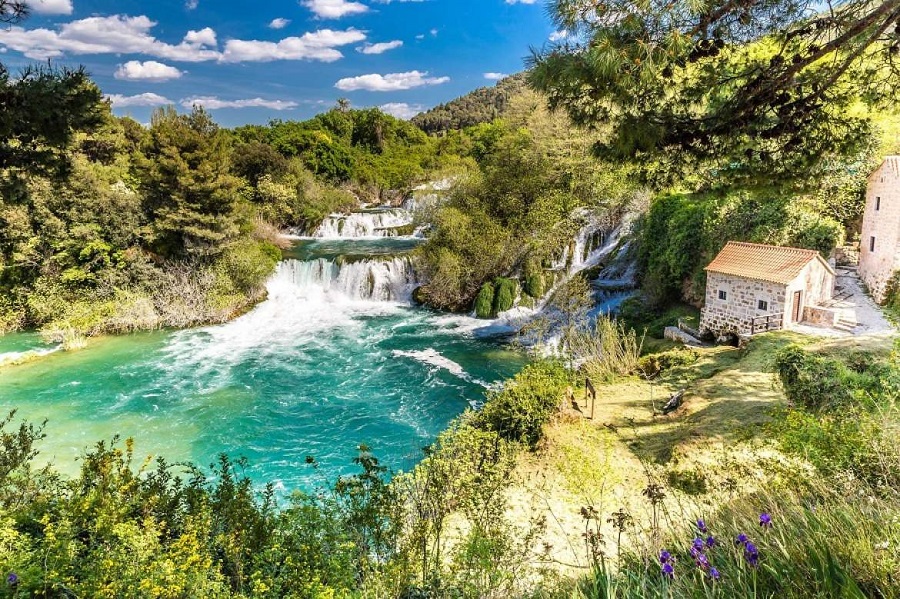
(National Park Krka/Romulic & Stojcic)
Crises come and crises go, but there is no substitute for an escape to nature. And Croatia is blessed with more natural beauty than most. Did you know that 10% of the country is given over to its 8 national and 11 nature parks. Want to see what true beauty is here in Croatia after Corona? Take a video tour of all 19, one by one in the Total Croatia Guide to that National and Nature Parks.
9. Safety
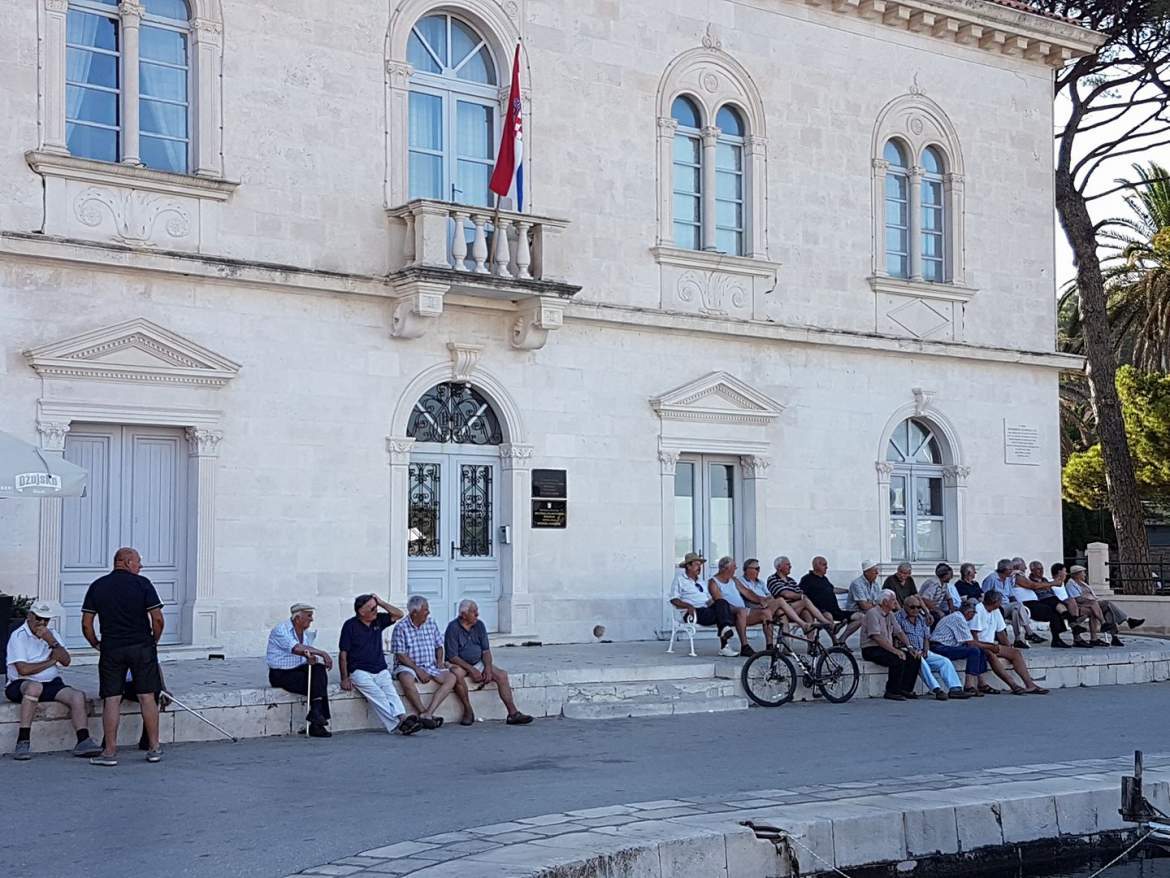
Croatia is easily the safest country I have lived in (out of 10 so far), and the sense of community and relative lack of crime is one of the unbeatable contributing factors to making it such a great place to bring up young children. It also contributes to that famous chilled lifestyle, which is yours to enjoy. Just come when you are ready.
10. Warm hospitality
But what would all this be without a warm welcome? Croatians are known for their hospitality, and many tourists leave with unforgettable memories of the welcome they received. I suspect that welcome will be all the warmer later this year in Croatia after Corona.
We all have a difficult period ahead of us, but let's not lose sight of how life can be when things return to normal.
Croatia will be waiting for you.
And it will be a magical experience.
Adria Trips: Life as a New York-Based Croatian Tour Specialist
March 12, 2020 - Life in the tourism industry is challenging with the current situation, even more so if you run a specialist Croatian tour agency in New York. TCN meets Srdana Pokrajac of Adria Trips on the perception of Croatia in the US market, and the realities of the current situation.
1. Let's start with the positives - interest in Croatia has risen considerably in recent years. Tell us a little about the reasons why, both world events and marketing.
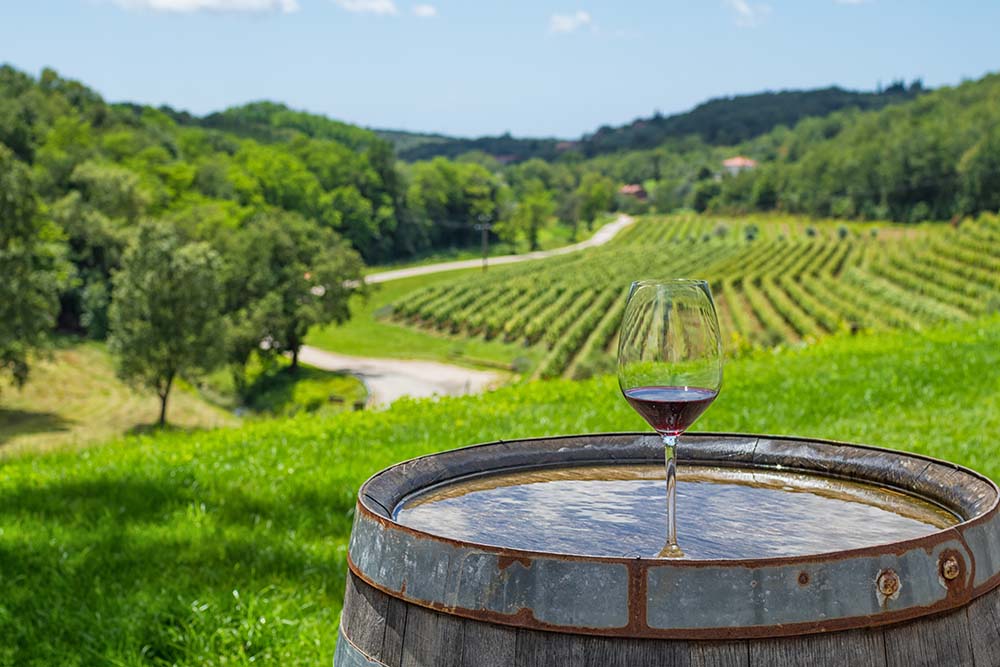
When I first moved to the US in 2010, I would occasionally bump into people who would be pleasantly surprised to hear I was from Croatia, and the first thing they would tell me was, ”I hear it’s beautiful over there, I want to go!” In the last two or three years, it seems many more people know where Croatia is and that it’s a great place to visit. Now it’s much more common to hear, “OMG, you’re from Croatia – we just came back from Croatia! We had a great time!”I think several factors have put Croatia on the map for travelers, including soccer, wine and Game of Thrones. In travel industry circles, interest for Croatia in the US has been growing, especially over the past decade. Many of my fellow travel advisors are offering Croatia, and I see it in almost every travel magazine, which makes me very excited. I occasionally stumble upon Croatian wine at restaurants, which makes me happy and I am even happier when people rave about it.
2. What is the perception of Croatia as a tourist destination in the States?
I believe that to some extent people are still not sure if it’s safe to travel to Croatia because they remember the civil war. I have had minimal encounters with people who are worried about safety, and I would say that the positive attitude and curiosity prevail. I would also add that for first time travelers to Europe, Croatia is a secondary destination to Italy, Spain, France, Greece and the UK. Curiosity is definitely there, and people taking longer trips definitely try to include at least some highlights of Croatia in their itineraries.
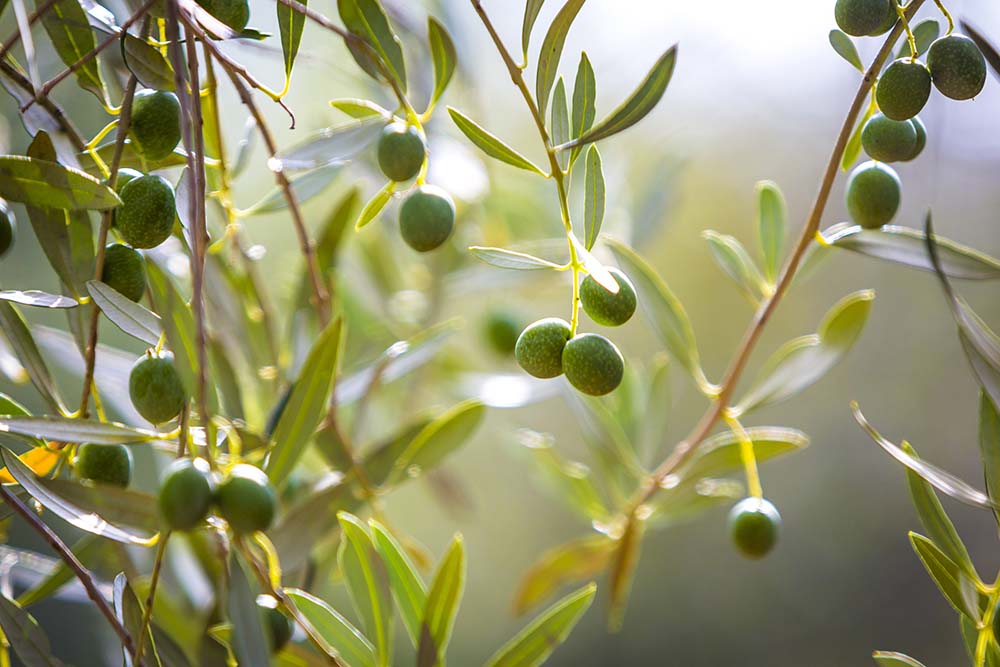
3. What are the niche advantages that Croatia has to offer, and how can we build on these to increase the market share of the important American market?
I think focusing on the natural beauty such as secluded and pristine beaches, National Parks, islands, and overall an abundance of places for outdoors activities could be something that distinguishes us from a “mass tourism” approach that could ruin our environment and annihilate our uniqueness. There are more and more tourists who demand content over sunbathing, and who try to avoid at all cost the “classic” tour approach. They would rather travel on their own and explore the destination at their own pace, than be part of a group and listen to a tour guide telling them what they can read in a book. On the other hand, if the tour guide can make the tour slightly more unique, it will attract their interest. I believe this approach is now widely known as storytelling, and there are a few folks taking a different approach to traditional sightseeing, making it a more personable experience.
I also think that we have an immense and still fairly untapped potential when it comes to food and wine. Wining and dining have become a form of art, an attraction on their own, so to speak, and we have so many creative chefs and young people who are motivated to express themselves. It also goes well with our natural inclination towards being good hosts. I think Croatians genuinely love showing off their motherland to tourists, which is understandable, since it’s such a beautiful country.

4. What are the top 5 things of interest for Americans coming to Croatia?
When it comes to destinations, I think Dubrovnik and Plitvice Lakes top the list. I was surprised that for clients from the USA, beaches and sunbathing are not that important. They are more interested in sightseeing. Some like to maximize their time and see as many destinations as they can, but that oftentimes makes a vacation feel more like a chore, and it’s not uncommon to find clients who prefer to take it slowly. I think that clients from the USA are also increasingly interested in local food and wine. There are plenty of US based companies that are organizing specialized tours that explore the different wine regions of Croatia, and they do an excellent job. They have a great passion for what they do, and are being great ambassadors for Croatia. Croatia is also a destination a lot of travelers see while cruising the Mediterranean, and not to mention sailing – which is quite niche, but there are many repeat travelers that choose the Adriatic for their summer vacations.
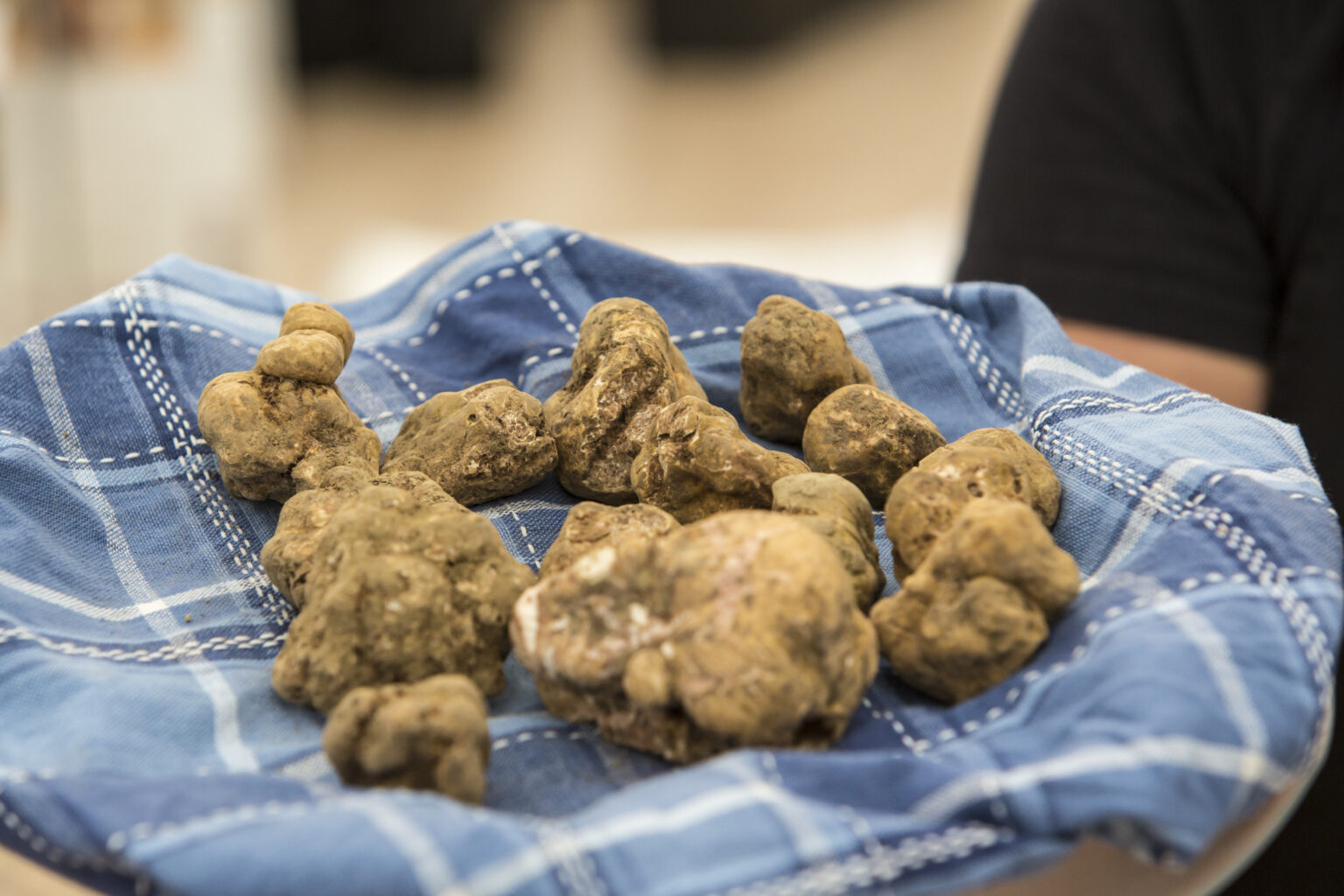
5. You started your own niche business dealing with the Croatian market. Tell us how you started and what you focus on.
I started in 2017 when interest for Croatia was growing. I actually took over an existing agency that in some shape or form has been in business for over two decades now. I sell a lot of airfare and custom-made tours. Earlier this year we launched a culinary tour focused on Istria, prioritizing authentic cuisine. I am from Istria and have always taken pride in showing people around. I think people appreciate if you can treat them as your friends, and give them a glimpse into what locals do. Generic “mass tourism” and catering to tourists takes away character. People are tired of that. My interest going into this business was finding a way to bring people closer to our culture, as opposed to selling them a prepackaged vacation. I think food speaks a lot about a culture, and you can learn a lot about a people’s norms and traditions from the way food is prepared, served and consumed. I think our meals can be quite hedonistic experiences, whereas in the United States people eat very quickly, and even restaurants thrive on speed and efficiency. So, I think oftentimes even just sitting down for a meal in Croatia can be quite a different experience for travelers from abroad.

6. Now let's talk about the current situation which is devastating for the travel industry. How badly have you been affected?
The majority of my transactions these days involve either cancellations or rescheduling. I feel terrible for clients whose travels have been affected by the current situation. I sell a lot of airfare and some clients are able to exchange their tickets for travel at a future date, but some tickets are nonrefundable or refundable with very high cancellation penalties. The morale is very low and discouraging, even more so when I think that Croatia is overly dependent on tourism, so there will be a ripple effect on the economy that we can’t even begin to quantify at the moment. I am confident that we will eventually recover. However, the current measures and precautions are worrying a lot of people, and travel advisors really are in no position to tell anyone what they should do about their travel plans. We try to keep calm and advise holding back from making cancellations until it gets closer to their travels – when possible. Many suppliers have accommodated their cancellation and rescheduling policies, so we are working towards avoiding or minimizing losses for our clients.
7. Italy is obviously the epicentre of the Europan coronavirus problems. Do Americans equate Italy and Croatia together in this or separately?
I would say that even Croatians equate Italy to Croatia right now. The fear is real. Clients are quite concerned. I think many are waiting to understand if they need to postpone or cancel their trips. It’s an “in limbo” situation. The US travel ban going into effect tomorrow hasn’t been received well by the already hurt travel industry.
8. None of us has a crystal ball for this unique situation. What are your fears and concerns for your business if a resolution is not found soon?
I used to be fairly optimistic but I think we are going to have a very bad season, if we are going to have any season at all. I am not sure people are excited about traveling right now. At some point (6 months, 1 year?) the situation will recover, but I am worried for the immediate future and especially small business owners.
For more information about Adria Trips, check out the official website.
For the latest in Croatian tourism, follow the dedicated TCN section.
Coronavirus to Hammer Croatian Tourism? Sector Expresses Concern
Coronavirus is a threat to not only public health, but to the global economy. With China, from where COVID-19 originated (Wuhan), being the place almost everything tends to be made, the global economy is taking a massive hit. Things for international tourism are also looking somewhat concerning. With Europe's tourist season just around the corner, how much of a hammering can Croatian tourism - the country's strongest economic branch - expect?
As Novac/Ruzica Mikacic writes on the 2nd of March, 2020, the world's tourism industry, which has been steadfastly resisting terrorism, wars, epidemics, fear of (a lack of) security when on holiday, tsunamis and storms for a decade, could now be dragged to its knees. The coronavirus outbreak is the first reason why the global tourism industry has had to admit that it isn't strong enough to deal with it without fear and danger, the cancellation of the biggest ITB World Trade Fair in Berlin being the best confirmation of that.
That has never happened in the 54-year history of the huge Berlin Fair and ITB, so the concerns of tourism professionals at the threshold of the preseason are thus much greater.
The casualness with which tourist professionals shook hands until yesterday, saying that everything surrounding the epidemic of coronavirus would calm down by Easter without major consequences for tourist trips, disappeared overnight when Germany quarantined thousands of its citizens in the last 48 hours and became one from the top ten countries with the highest number of infected and carriers of the quickly spreading virus.
The fact that during the five days of the largest ITB World Tourism Exchange, the German capital would see about 160,000 visitors crammed into place and at least another 50,000 employees at the booths of 180 countries, set alarm bells off at the German Federal Ministry of Health which made the decision to put a stop to the event.
Irredeemable financial losses
It's now quite clear that the coronavirus has shaken up tourism developments across the world more than any problematic situation in the past turbulent decade. Until a week ago, the balance of pre-season travel reservations was dormant, there were no new bookings, but there were no significant cancellations. In just a few days - things changed significantly, for Croatian tourism too.
''With the cancellations from Asian groups alone who were planning trips through Croatia over the course of several months this winter will see my company lose several hundred thousand euros in traffic and it will be impossible to make up for all that.
We're now in a problem with other markets as reservations haven't been being made for days now, and our partners from abroad are already inquiring about cancellation options and looking for better conditions for cancellation. Specifically, everyone now wants to extend the cancellation period without penalty to just one week before the trip, so tourists can decide at the last minute whether they want to embark on their travels or not. Everything turns into a "last minute" sale, which makes it impossible to work normally,'' says an experienced travel agent operating within the Croatian tourism industry for the Slobodna Dalmacija publication.
Concerns are also growing with Croatian tourism companies well. Currently, those in the best position are those who have received numerous bookings since December 2019 and mid-January this year.
''Now we have 50 new airlines compared to last year, a successful year is ahead. We've spoken with the largest tour operators in Germany and it's too early for accurate figures, but Croatia's position is good and stable. Compared to its competitors, Croatia has the best position at the moment. We plan to increase German arrivals by 3 percent, but even if we were to repeat what we had in 2019 with three million Germans in Croatia, we'd be satisfied,'' said Kristjan Stanicic, director of the Croatian National Tourist Board (HTZ), in Munich a few days ago.
''The bookings for 2020's season was off to a great start in December and by mid-January we had up to twelve percent more bookings. Since mid-January, everything has stopped. Hopefully it will be better in early March. The reason for this is coronavirus, because the Germans, like everyone else, are frightened and they aren't booking because they don't know how things will progress with the virus in the future. This is not only the case for Croatia, the virus is everywhere, Greece, Turkey, Italy, all cruiser ships, everyone is experiencing worse sales right now.
Looking at the total balance of bookings for this year, we're still positive and we have six, seven percent growth. Private accommodation is also doing well, we have a big plus in bookings of eighteen percent. Sales for the post-season by the end of October are excellent, and the preseason months until June are significantly slower than last year,'' said Konstantin Gaitanides, director of ID Riva Tours in Munich.
Last minute bookings are likely to cause issues and confusion for tourism companies worldwide, including for the Croatian tourism industry...
A similar situation to that of Croatia has been seen for reservations for Italy and Turkey, according to German tour operators, who are expecting a strong "last minute". Specifically, at the beginning of March, 65 percent of Germans still hadn't booked their holidays abroad, and this is absolutely atypical for German booking habits. At this time last year, there were 20 percent more bookings already booked in Germany, according to analyses and reports such as IPK International and Reise Analyse, published over recent days.
This year, however, the Germans are waiting and delaying their decisions because of the current coronavirus epidemic. All this worries tour operators in Germany just like it worries their hosts here in Croatia, especially now that ITB has been cancelled.
Namely, as the world's largest business tourism gathering, in the run-up to the preseason, the basic contours of what the coming business year will look like are provided, directions, trends and signposts of how tourist traffic will unfold are seen. Without hundreds of conferences, analyses, contracts to be signed in Berlin this year and the launch of a new offer, the tourist world has now lost a very important compass in its business thanks to coronavirus fears.
Billions have now been lost
The World Tourism and Travel Council (WTTC) announced on Saturday that a drop in consumption and a reduced volume of travel worldwide have already cost the tourism sector the equivalent of about 22 billion dollars. The data was obtained with the help of the Oxford Institute, which compared the aftermath of Sars 2002/2003.
According to the WTTC, if coronavirus continues in this manner for as long as SARS did (about six months), then global tourism losses could doubledto around 49 billion dollars. But if it lasts longer than June, the losses will rise to 73 billion dollars, with Hong Kong, Macau, Thailand, Cambodia and the Philippines among the biggest losers in terms of tourism.
Make sure to follow our dedicated business page for more on coronavirus' effects on Croatian tourism.
Tourism Minister Gari Cappelli on Coronavirus: Don't Panic, No Cancellations Yet
February 27, 2020 - Croatian Tourism Minister Gari Cappelli comments on the coronavirus and its effects on Croatian tourism so far.
HRTurizam reports that the panic and spread of mass hysteria around the coronavirus is of no use to anyone, and many experts and scientists are calling for the voice of reason.
Today, Croatian Tourism Minister Gari Cappelli was the voice of reason at a session of the Croatian Government, stating that 24,500 tourists are currently staying in Croatia, or about 3% more guests than at the same time last year.
"There is still no major decline, except of course from the eastern markets, such as China and South Korea, as expected. In the first month, we had an increase of about 70% from the Chinese market, and now in February, a decrease of 60% was achieved, so we got closer to zero.”
As for the impact of the current situation on tourism revenue, Capelli noted that the first three months affect somewhere around 5%, while the first six months affect 27% of total tourism revenue.
“So the first three months will not have a significant impact on total tourism revenue. The biggest eventual cancellations that occur are in business and congress tourism, which is about reservations for March. Easter is earlier this year, so it won't even be a true picture of what's going to happen in the rest of the tourist season. The real picture will be shown by the situation in May, when the biggest arrivals are achieved because tourists connect holidays."
Cappelli added that in the last two years we have a new tendency in tourism through last minute bookings, i.e., our guests only book their arrival in May and June for the peak tourist season.
"So far, we do not have any cancellations for the main part of the tourist year; our markets are still stable. Positive data shows that we have a 3% increase in interest from the German market as well as from 7% to 8% in the UK this year. So for now, we do not feel any disadvantages, except for a slight halt to bookings, which was to be expected in this situation. There is no room to panic, the government headquarters manages the situation in real-time and all services are fully prepared,” Cappelli concluded.
"We need to stop any panic and big shopping trips for supplies, because we are not in this situation or at this stage at all," said Prime Minister Andrej Plenkovic, adding that the Government will remain 100% transparent and prompt about all relevant information to the public.
To read more about travel in Croatia, follow TCN's dedicated page.
Conservative or Liberal? Croatia, Full of Adriatic Coastal Diversity
February 26, 2020 - Images of a burning effigy of a gay couple during the Imotski Carnival went all around the world, shocking many. But this is only one part of the story. A look at conservative and liberal Adriatic coastal diversity.
What is Croatian cuisine? How do you define it?
The truth is that there is no national cuisine as such, more a group of (outstanding) regional cuisines, which have little in common apart from their excellence. The heavy meat dishes and river fish from Slavonia for example, differ greatly from the freshly grilled fish soaking in olive oil and accompanied by fresh blitva in Dalmatia.
And so too with the people who make up this beautiful land. Hard-working Slavonians and laid-back Dalmatians, more sophisticated types in the capital Zagreb to the more liberal, working-class cities such as Rijeka, while Istria has half an eye on Italy in terms of cuisine and culture. This diversity is one of the things I love most about living here, but it also makes it extremely difficult to tar Croatians with the same brush. For the regions are VERY different, at least in my opinion. Two very public events recently perhaps help to highlight that diversity. The first did not get as much international publicity as it perhaps deserved, while the second was a much smaller affair and went all over the globe.
I thought the opening day and night of Rijeka 2020, European Capital of Culture, was absolutely fantastic. There was an energy in Rijeka I had not come across during my time here, and I partied until 6am and ended up sleeping in the car. My experience (perhaps without finishing in the car) was mirrored by other foreigners I met along the way. You can read my comprehensive account here.
Had I been oblivious to the Croatian media, I might have concluded that everyone enjoyed a fantastic experience, but this is Croatia... The fact that the event was boycotted (there is no other word, in my opinion) by the then Croatian President, herself a Rijeka native, with other notable absentees including the Prime Minister and Speaker of the House, was an early indication of the politics involved.
Red Rijeka certainly did not hold back in celebrating its socialist history, and the showcasing of the Yugoslav flag in a prominent exhibition with no mention of the victims of the Tito regime caused outrage in the right-wing media in Croatia. The event and content was severely attacked on television and online portals and was the subject of lively debate for days. Red Rijeka is obviously comfortable with its direction, and Mayor Obersnel appeared dressed at Tito's wife Jovanka at this week's carnival, which did little to endear him to the right-wing sections of the country.
Meanwhile, in a little town in inland Dalmatia, another carnival story emerged, as the Imotski carnival burned an effigy of a gay couple carrying a child doll in the image of SDP MP Nenad Stazic, including the Yugoslav red star on his forehead. Stazic had supported the first gay foster couple recently. While the traditional carnival has always included the burning of a figure as satire, many thought the Imotski organisers had gone too far. National media condemnation was accompanied by international, with one portal comparing it to a 1935 carnival in Germany where the Jews were the subject of ridicule.
And so began another keyboard warrior battle between the two main sides of Croatian society. The liberals condemning the act, the conservatives broadly standing their ground and talking about the right of free speech. As an advert for a tourism country, it was appalling, and the many comments included several who said that this event meant that would cross Croatian off the bucket list. Which I can understand, but it got me thinking, especially after that totally different experience in Rijeka, which was as liberal as any Western city I have spent time in.
A little like that non-existent central Croatian cuisine, the regions of Croatia are very different. And Imotski is quite possibly the most entrenched in its ways and thinking in the whole country. How best to illustrate that diversity in a simple format?
I decided to take a look at the regional results on the 2013 national referendum, often referred to as the 'gay marriage referendum', when Croatia voted on the simple question - "Do you agree that marriage is matrimony between a man and a woman?"
Around 65% of voters decided that they did, and so the constitution was changed to ban same-sex marriage. But while two thirds may have voted for it on average nationally, the regional votes were VERY diverse, with Imotski one of just two places that voted more than 95% yes. Indeed, the area around Imotski included 5 of the 7 towns which voted more than 90% yes. All the Dalmatian counties from Zadar to Dubrovnik voted 74-77% yes - the traditional conservative heartland of Croatia.
By contrast, further up the coast, the voting was very different. The biggest opponents to the referendum were in Labin in Istria (71%). Rijeka was 59% against, while the Istrian peninsula was 58% against. I think it is fair to say that the likes of Rijeka and Istria are a little more liberal than large parts of Dalmatia. I am not saying that it is a good thing or a bad thing, just a statement of fact.
Having lived in Dalmatia for 13 years, I love the place, and I am also very fond of Imotski on the many times I have visited. But it is VERY conservative, traditional, right-wing and nationalistic. Quite how far to the right a friend found out several years ago on a visit there to a cafe which has since closed and is under new ownership - Caffe-Bar A D O L F.
"We were in a large group, 4-5 families on a road trip to Međugorje via Pisak, Runovići and Imotski... We sat down for coffee and juice and I was intrigued by the name of the bar. My wife said "Oh, no, I'm sure it's just a coincidence, that would be too crazy."
"So a few minutes later I go inside to the toilet and, sure enough, "Poglavnikovo pivo" (a reference to Ante Pavelic) and "Hitlerovo vino" proudly displayed on a shelf behind the bar.
"So I did my business in the toilet and we immediately left ..."
But you wouldn't find that in Rijeka or most of the rest of the country.
The Croatian Government put out a statement on the Imotski incident on its official website:
"The tradition of burning the carnival effigy usually consisted of a sort of humorous and mocking criticism of various events in Croatian society. That sort of carnival spirit can remain within the boundaries of satire when it 'judges' someone in power like the president, the prime minister, a mayor or some other politician, but by no means those who represent various minorities in Croatian society. That is not traditional, nor entertaining nor in the spirit of Croatian and European values. As such, we condemn that act," the government said.
"Our approach is that we oppose any form of hate speech and aggression - political, ideological, verbal and physical - just like any other act that offends the feelings of the Croatian people and contributes to divisions in society."
Croatia is as diverse and complicated as it is beautiful. Perhaps not all parts are for everyone, but there is certainly something for everyone with its Adriatic coastal diversity.
Croatian Tourism: Country Should Get 2478 New Hotel Rooms by 2025
As Dora Koretic/Novac writes on the 20th of February, 2020, the Republic of Croatia should be richer for 2478 new hotel rooms over the next five years, but given the currently extremely low share of hotel accommodation in the Croatian tourism sector, as well as the goals we set for the Croatian tourism strategy, the news doesn't really provide much room for optimism.
Statistics prepared and presented by Horwath HTL consultant partner Sinisa Topalovic recently as part of the Adria Hotel Forum showcase the current investor interest in investing in hotels in the region by 2025, and although Croatia is ranked fourth out of twelve countries by the number of hotel rooms which should be added, the numbers are still far from the goals that had been set for the period from 2013 to 2020, which was to get 20,000 new hotel rooms.
The good news for Croatian tourism is that when compared to the country's immediate region, the average investment per hotel key will be higher than the regional average, but this is mainly due to the fact that investors have, at least in the last years, significantly implemented brownfield four-star projects, which mean less risky investments, and now they have more serious greenfield projects of a higher category in their sights.
The statistics on the number of branded hotel rooms don't allow for too much optimism either, since the majority of those realised here in Croatia will fall on the investments of the local hoteliers themselves, while two Four Season projects on the island of Hvar and in Kupari (near Dubrovnik), Hilton Costabella, Marriott in Split and the Aman resort in Cavtat are currently in the pipeline.
Croatian investors have once again shown that they don't truly believe in the importance that a reputable international hotel name can bring to them, but prefer to perform on their own on the Croatian tourism scene as some sort of one man show.
''Croatia must immediately and urgently open up space for the growth of the hotel industry, not only for large hotels but also for small, family and boutique hotels, because the current pattern of development leads to a further reduction of the competitiveness of the entire sector. The sooner this is understood at the level of decision-makers, the more time we'll have left to rectify the already severely impaired sustainability of this sector. This problem requires a holistic approach from multiple ministries to create the conditions for competitive growth,'' said Topalovic.
Make sure to follow our business and travel pages for more on Croatian tourism.


